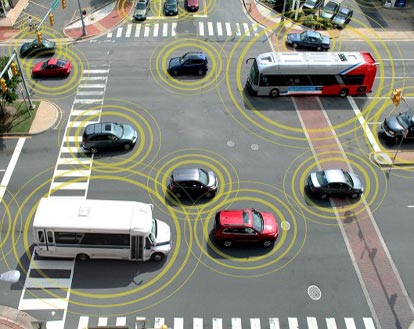The U.S. government says Wi-Fi contributes to more than $140 billion of economic activity per year and demand is growing for the limited available spectrum, according to CBS news. A new bill has been drafted to fix this problem.
Lawmakers plan to open a Wi-Fi space for the public; however, it could negatively impact vehicle-to-vehicle commutation (V2V) technology, which prevents up to 80 percent of car crashes. The automotive industry has invested more than half a billion dollars into V2V thus far.
After more than a decade in development and more than a half-billion dollars in taxpayer money spent, the technology aimed at making roads safer and saving an estimated 1,083 lives every year may now be sidelined to make room for Wi-Fi.
Some believe the creation of a new Wi-Fi space will offer new opportunities.
“We’re making sure, first and foremost, the safety needs of the auto industry will be met, while also giving more opportunities for more innovation, more job creation, more economic expansion and more fairness in terms of accessing the internet,” Sen. Cory Booker (D-New Jersey) said.
Not all are in agreement that this bill proposal is a good idea. Dr. Peter Sweatman from the University of Michigan has been working on the technology for more than five years and is asking Congress not to pass the bill. He believes these changes could delay safety equipment and negatively affect the V2V’s bandwidth.
“Our concern is that any other traffic within that spectrum could potentially block one of these important signals. We don’t want to be in a position where some other use of the spectrum for, for transmitting a movie or something, is going to have to be stopped so that our signal can get through,” Sweatman said.
The Department of Transportation and the National Transportation Safety Board (NTSB) believe many fatal accidents could have been prevented by V2V, such as a fatal school bus accident in New Jersey in 2012. “Spectrum sharing could put the frequencies at risk of dangerous interference. The opportunity to improve transportation safety must not be delayed by issues associated with interference,” the NTSB said.
The FCC and Congress will carefully evaluate whether V2V and Wi-Fi can co-exist before making any final decisions.






